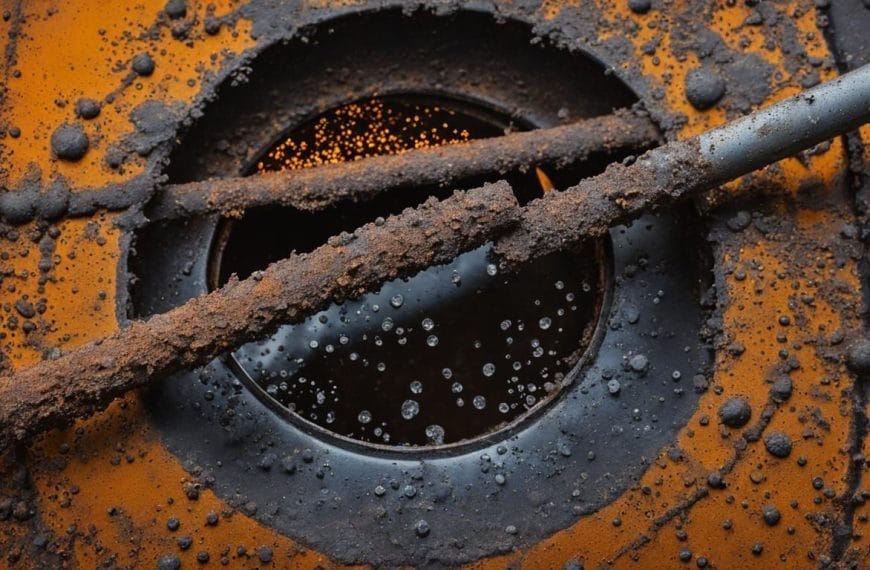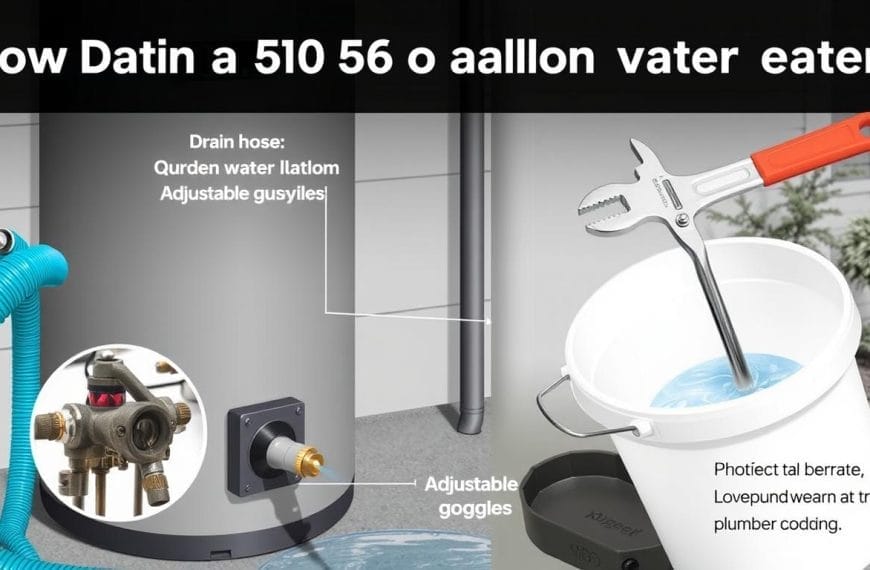So, you're probably sitting there wondering, why is my water heater whistling? It’s like your water heater has decided to join a high-pitched choir, and you’re left scratching your head. That whistling sound is not just annoying; it could be a sign of something bigger going on under the hood. Let’s dive into this, shall we? Whether you’re a DIY enthusiast or just someone who wants to understand what’s happening, this article’s got your back.
Let’s face it, when your water heater starts acting up, it can feel like you’ve got a mystery on your hands. But don’t panic yet! The whistling noise isn’t always a disaster waiting to happen. In fact, most of the time, it’s fixable with a little know-how and some troubleshooting. And that’s exactly what we’re going to cover here.
Think of this article as your trusty sidekick in solving the water heater whistling mystery. We’ll break it down step by step, so you can identify the problem and take action before things escalate. Ready to get started? Let’s roll!
Read also:Boll4you The Ultimate Guide To Understanding And Maximizing Its Potential
Table of Contents
- Understanding the Basics of Water Heater Whistling
- Common Causes of Water Heater Whistling
- How to Diagnose the Problem
- Steps to Fix Water Heater Whistling Issues
- Preventive Measures to Avoid Future Whistling
- When to Call a Professional
- Different Types of Water Heaters and Their Whistling Risks
- Maintenance Tips for Your Water Heater
- FAQ About Water Heater Whistling
- Conclusion: Keep Your Water Heater Happy
Understanding the Basics of Water Heater Whistling
Alright, let’s start with the basics. When you hear that whistling noise coming from your water heater, it’s usually a result of water flow being restricted somewhere in the system. Think of it like trying to blow air through a straw—if the opening is too small, you’re gonna get that high-pitched sound. Same deal here.
Water heaters are designed to heat water and distribute it throughout your home, but sometimes things can go awry. The whistling could be caused by a variety of factors, ranging from mineral buildup to loose parts. And trust me, it’s not something you want to ignore for too long.
Why Is My Water Heater Whistling All of a Sudden?
Ever notice how things just start acting up out of nowhere? Yeah, it’s kinda like that with water heaters too. One day you’re enjoying your hot shower in peace, and the next day, BAM! Whistling noise. So, what gives?
Well, sudden whistling can often be traced back to recent changes in your water system. Maybe you’ve had a plumber over, or perhaps there’s been a change in water pressure. Whatever the case, pinpointing the exact cause will help you address the issue faster.
Common Causes of Water Heater Whistling
Now that we’ve covered the basics, let’s dive into the nitty-gritty of why your water heater might be whistling. Here are some of the most common culprits:
- Mineral Buildup: Over time, minerals like calcium and magnesium can accumulate inside your water heater, creating blockages that restrict water flow.
- Loose Parts: Loose components, such as the dip tube or heating element, can vibrate and create that whistling sound.
- High Water Pressure: If the water pressure in your home is too high, it can force water through narrow openings, resulting in a whistling noise.
- Clogged Pipes: Debris or sediment in your pipes can restrict water flow, leading to that annoying sound.
- Faulty Pressure Relief Valve: This valve is designed to release excess pressure, but if it’s malfunctioning, it can cause whistling.
See, it’s not just one thing that could be causing the problem. It’s like a puzzle, and we’ve got to figure out which piece fits where.
Read also:Unlock The Power Of Sd Points Your Ultimate Guide To Earning And Redeeming
How Do Minerals Cause Water Heater Whistling?
Minerals in your water, especially if you live in an area with hard water, can build up over time. This buildup can form a layer on the inside of your water heater, restricting water flow and causing that whistling sound. It’s like your water heater is trying to tell you it’s time for a good cleaning.
How to Diagnose the Problem
Alright, so now that we know some common causes, how do you actually figure out what’s going on with your water heater? Diagnosing the problem is key to fixing it. Here’s a step-by-step guide:
First things first, turn off the power to your water heater. Safety first, folks! Then, check the following:
- Pressure Relief Valve: Test the valve to see if it’s functioning properly. If it’s stuck or leaking, that could be your issue.
- Water Pressure: Use a pressure gauge to check the water pressure in your home. If it’s too high, you might need a pressure-reducing valve.
- Pipes: Inspect your pipes for any signs of clogging or blockages. You might need to flush them out.
- Heating Elements: If you have an electric water heater, check the heating elements for any signs of wear or tear.
Remember, diagnosing the problem might take a bit of trial and error, but it’s worth it in the end.
What Tools Do I Need to Diagnose Water Heater Whistling?
You don’t need a whole toolbox to diagnose the issue, but having a few essentials on hand can make the process smoother. Here’s what you’ll need:
- A pressure gauge
- A wrench
- A screwdriver
- A bucket (for draining water)
With these tools, you’ll be able to tackle most of the diagnostic steps without breaking a sweat.
Steps to Fix Water Heater Whistling Issues
So, you’ve diagnosed the problem—now it’s time to fix it. Here’s how you can tackle some of the most common issues:
Fixing Mineral Buildup
Flushing your water heater is the best way to remove mineral buildup. Here’s how:
- Turn off the power and water supply to your water heater.
- Connect a hose to the drainage valve and place the other end in a bucket or drain.
- Open the valve and let the water drain out until it’s clear.
- Close the valve, refill the tank, and turn the power back on.
Voila! Your water heater should be good as new.
Replacing the Pressure Relief Valve
If the pressure relief valve is the culprit, replacing it is relatively simple. Just make sure to turn off the power and water supply first. Then, follow the manufacturer’s instructions for installation.
Preventive Measures to Avoid Future Whistling
Prevention is key when it comes to maintaining your water heater. Here are a few tips to keep that whistling noise at bay:
- Flush your water heater regularly to prevent mineral buildup.
- Install a water softener if you live in an area with hard water.
- Monitor your water pressure and adjust it if necessary.
- Inspect your water heater annually for any signs of wear or damage.
By taking these steps, you’ll not only avoid whistling but also extend the lifespan of your water heater.
When to Call a Professional
There are times when it’s best to leave the job to the pros. If you’ve tried diagnosing and fixing the issue yourself but the whistling persists, it’s time to call in reinforcements. A professional plumber can assess the situation and provide a more thorough solution.
And let’s be real, sometimes it’s just easier to let someone else handle it, especially if you’re short on time or unsure of your skills.
Different Types of Water Heaters and Their Whistling Risks
Not all water heaters are created equal, and some are more prone to whistling than others. Let’s take a look at the different types and their potential risks:
- Tankless Water Heaters: These are less likely to whistle due to their design, but they can still have issues with mineral buildup.
- Electric Water Heaters: These are more prone to whistling due to their heating elements.
- Gas Water Heaters: These can whistle if the venting system is blocked or if there’s a problem with the burner.
Knowing the type of water heater you have can help you better understand its potential issues.
Maintenance Tips for Your Water Heater
Maintaining your water heater is crucial for its longevity and performance. Here are some tips to keep it in tip-top shape:
- Check the anode rod annually and replace it if necessary.
- Inspect the pressure relief valve regularly.
- Keep the area around your water heater clean and free of debris.
- Consider upgrading to a more efficient model if your current one is outdated.
A little maintenance goes a long way in preventing problems down the road.
FAQ About Water Heater Whistling
Can a Whistling Water Heater Be Dangerous?
In most cases, a whistling water heater isn’t dangerous, but it can indicate a problem that needs to be addressed. If left unchecked, issues like high water pressure or a faulty pressure relief valve could lead to more serious problems.
How Often Should I Flush My Water Heater?
It’s recommended to flush your water heater at least once a year to prevent mineral buildup. If you live in an area with hard water, you might need to do it more frequently.
Conclusion: Keep Your Water Heater Happy
So there you have it, folks. The mystery of why your water heater is whistling has been solved. Whether it’s mineral buildup, loose parts, or high water pressure, there’s a solution for every issue. By diagnosing the problem and taking the necessary steps to fix it, you’ll be back to enjoying hot water in peace in no time.
Don’t forget to implement those preventive measures and maintenance tips to keep your water heater running smoothly. And if all else fails, don’t hesitate to call in the professionals.
Now it’s your turn! Have you dealt with a whistling water heater before? Share your experience in the comments below, and don’t forget to share this article with your friends who might be dealing with the same issue. Let’s keep those water heaters happy together!


